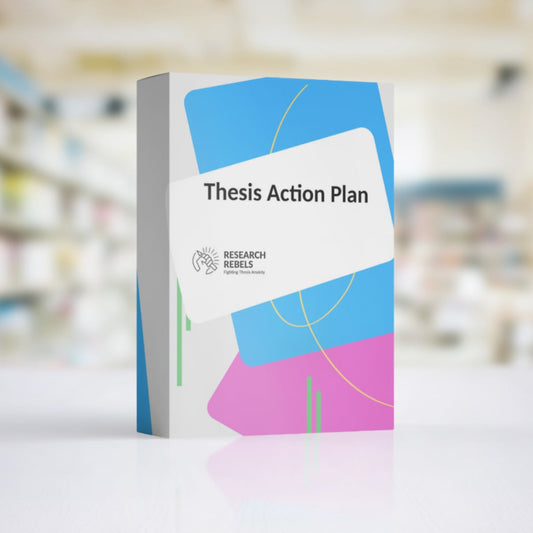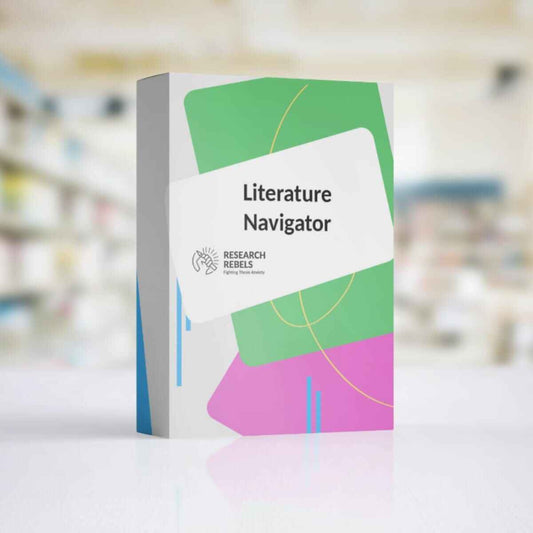Understanding the Difference Between Research Objectives and Research Questions

In the realm of academic research, understanding the distinction between research objectives and research questions is crucial for the success of any study. Both elements play integral roles but serve different purposes in guiding the research process. This article aims to elucidate the differences between research objectives and research questions, their respective roles, and how to effectively formulate them.
Key Takeaways
- Research objectives are specific, measurable goals that a study aims to achieve, while research questions are broad inquiries guiding the overall direction of the research.
- Clear definitions of both research objectives and research questions are essential for setting a solid foundation for any research project.
- Research objectives help in setting specific goals, guiding the research process, and measuring success, whereas research questions identify the main problem, generate hypotheses, and define the study's scope.
- Formulating effective research objectives and questions involves distinct steps and avoiding common pitfalls, ensuring a focused and coherent study.
- Understanding the interrelationship between research objectives and questions enhances the coherence and depth of academic research.
Defining Research Objectives and Research Questions
Understanding the distinction between research objectives and research questions is fundamental to conducting effective research. Research questions are broad statements that guide the overall direction of the research, identifying the main problem or area of inquiry. In contrast, research objectives are specific, measurable goals that the research aims to achieve. These two elements are not mutually exclusive; well-defined research questions should lead to specific objectives necessary to answer the question.
The Role of Research Objectives in a Study
Research objectives play a crucial role in shaping the direction and scope of your study. They are concise statements that describe what the research aims to achieve and help maintain focus throughout the research process. Clear research objectives help avoid collection of data or resources not required for the study.
The Role of Research Questions in a Study
Research questions are the specific concerns that you will answer through your research. They are derived from your research problem but are based on your study design. When you narrow down your research problem to a specific idea that points towards a feasible way to investigate or address your research problem, you get your research question. Thus, to frame your research questions, you will also need to have a clear idea of what you aim to achieve through the study. Research questions are the core purpose of your dissertation, thesis, or research project.
The research questions will be the driving force throughout the research process. For example, in the literature review chapter, you’ll assess the relevance of any given resource based on whether it helps you move towards answering your research questions. Similarly, your methodology and research design will be heavily influenced by the nature of your research questions. This process often leads to the generation of hypotheses that can be tested empirically.
Research questions help in defining the scope of your study. They determine what will be included and what will be excluded from your research. By clearly stating your research questions, you set boundaries for your study, ensuring that your research remains focused and manageable. This is crucial for avoiding thesis anxiety and ensuring that your study is both specific and comprehensive.
Key Differences Between Research Objectives and Research Questions
Research objectives and research questions differ fundamentally in their nature and formulation. Research questions are broad statements that guide the overall direction of the research. They identify the main problem or area of inquiry that the research will address. For example, a research question might be, "What is the impact of social media on teenage mental health?" This question sets the stage for the research and helps to define the scope of the study. On the other hand, research objectives are specific, measurable goals that the research aims to achieve. They are typically developed based on the research problem, literature review, and theoretical framework, and should be specific, measurable, achievable, relevant, and time-bound (SMART). Understanding these two terms' differences is essential for conducting effective and meaningful research.
The purpose and function of research objectives and research questions also differ significantly. Research questions are often used to generate hypotheses or identify gaps in existing knowledge. They help define the study's scope and guide the overall direction of the research. In contrast, research objectives are used to establish clear and achievable targets for the research. They guide the research process by providing specific goals that the researcher aims to achieve. Knowing the difference between goals, objectives, and questions is an important skill throughout your design research career.
To illustrate the differences between research objectives and research questions, consider the following examples:
- Research Question: What is the impact of social media on teenage mental health?
- Research Objective: To assess the correlation between social media usage and levels of anxiety and depression among teenagers.
In this example, the research question identifies the main problem or area of inquiry, while the research objective defines the specific outcome that the researcher is looking to achieve. This distinction is crucial for guiding the research process and ensuring that the study remains focused and relevant.
How to Formulate Effective Research Objectives and Questions
Formulating effective research objectives and questions is a critical step in the research process. Clear and well-defined objectives and questions provide a roadmap for your study, ensuring that you stay focused and on track. Here are some tips for researching and organizing your thesis. Define purpose, choose relevant topic, set clear goals. Stay motivated and make steady progress towards completing your thesis.
Interrelationship Between Research Objectives and Research Questions
Research objectives and research questions play complementary roles in a study. While research questions identify the main problem or area of inquiry, research objectives define the specific outcomes that the researcher aims to achieve. This interrelationship ensures that the study remains focused and directed towards achieving its goals. The link between the research objectives, research questions, and findings is shown in tables 2 and 3.
The mutual influence between research objectives and research questions is significant. A well-defined research question should lead to specific objectives necessary to answer the question. Conversely, clear objectives can help refine and focus the research questions. This dynamic relationship ensures that both elements work together to guide the research process effectively.
Case studies often illustrate the practical application of the interrelationship between research objectives and research questions. For instance, in a study on the impact of social media on teenage mental health, the research question might be, "What is the impact of social media on teenage mental health?" The corresponding objectives would then include specific goals such as measuring the frequency of social media use among teenagers and assessing its correlation with mental health outcomes. Crafting effective interview protocols involves structured conversations, defining the target audience, determining key questions, and designing the interview structure to create a guide for focused conversation and valuable insights.
Practical Applications in Academic Research
Case Study Analysis
In academic research, case studies serve as a powerful tool to illustrate the practical applications of theoretical concepts. By examining specific instances, you can gain insights into how research objectives and questions are formulated and addressed in real-world scenarios. Applied research requires practical solutions for existing problems, making case studies an invaluable resource for understanding the nuances of research design and implementation.
Best Practices
Adhering to best practices in academic research ensures that your study is both credible and impactful. This includes clearly defining your research objectives and questions, maintaining ethical standards, and rigorously analyzing your data. To enhance your research, you should find literature that supports your hypotheses and provides a solid foundation for your study. This approach not only strengthens your research but also aligns it with established academic standards.
Tools and Resources
Utilizing the right tools and resources can significantly streamline your research process. From software for data analysis to platforms for literature search, these tools can help you manage your research more efficiently. For instance, tools like R Discovery and Paperpal can assist you in conducting comprehensive literature reviews, while project management software can help you keep track of your research milestones. This is where you can suggest how your findings can be applied in practice, and what are the possible directions for future research in your field.
In the realm of academic research, practical applications are key to overcoming common challenges faced by students. Our innovative Thesis Action Plan is designed to guide you through every step of your thesis journey, ensuring you never feel lost or overwhelmed. With proven methodologies and strategies validated by professors and students worldwide, our resources are tailored to meet your unique needs. Don't let thesis anxiety hold you back any longer. Visit our website to claim your special offer now and take the first step towards a stress-free thesis writing experience.
Conclusion
In conclusion, understanding the distinction between research objectives and research questions is fundamental for conducting effective and meaningful research. Research questions serve as broad, guiding statements that define the scope and direction of the study, while research objectives are specific, measurable goals that the research aims to achieve. These two elements, though distinct, are complementary and together provide a comprehensive framework for the research process. By clearly defining both research questions and objectives, researchers can ensure a focused and structured approach, ultimately leading to more precise and valuable outcomes. This clarity not only enhances the quality of the research but also contributes to the advancement of knowledge within the field.
Frequently Asked Questions
What is the difference between research objectives and research questions?
Research objectives are specific, measurable goals that a researcher aims to achieve in a study, while research questions are broad inquiries that guide the overall direction of the research.
Why are clear definitions of research objectives and questions important?
Clear definitions help ensure that the research is focused, organized, and able to achieve its goals. They provide a roadmap for the research process and help measure success.
How do research objectives guide the research process?
Research objectives set specific goals that the researcher aims to achieve. They help in planning the methodology, data collection, and analysis, ensuring that the research stays on track.
What role do research questions play in a study?
Research questions identify the main problem or area of inquiry and help in defining the scope of the study. They guide the formulation of hypotheses and direct the research towards addressing specific issues.
Can a study have both research objectives and research questions?
Yes, a study can have both research objectives and research questions. Well-defined research questions should lead to specific objectives necessary to answer the questions.
What are common pitfalls to avoid when formulating research objectives and questions?
Common pitfalls include being too vague or too broad, not aligning with the research problem, and failing to be specific, measurable, achievable, relevant, and time-bound (SMART).
Understanding the Difference Between Research Objectives and Research Questions

In the realm of academic research, understanding the distinction between research objectives and research questions is crucial for the success of any study. Both elements play integral roles but serve different purposes in guiding the research process. This article aims to elucidate the differences between research objectives and research questions, their respective roles, and how to effectively formulate them.
Key Takeaways
- Research objectives are specific, measurable goals that a study aims to achieve, while research questions are broad inquiries guiding the overall direction of the research.
- Clear definitions of both research objectives and research questions are essential for setting a solid foundation for any research project.
- Research objectives help in setting specific goals, guiding the research process, and measuring success, whereas research questions identify the main problem, generate hypotheses, and define the study's scope.
- Formulating effective research objectives and questions involves distinct steps and avoiding common pitfalls, ensuring a focused and coherent study.
- Understanding the interrelationship between research objectives and questions enhances the coherence and depth of academic research.
Defining Research Objectives and Research Questions
Understanding the distinction between research objectives and research questions is fundamental to conducting effective research. Research questions are broad statements that guide the overall direction of the research, identifying the main problem or area of inquiry. In contrast, research objectives are specific, measurable goals that the research aims to achieve. These two elements are not mutually exclusive; well-defined research questions should lead to specific objectives necessary to answer the question.
The Role of Research Objectives in a Study
Research objectives play a crucial role in shaping the direction and scope of your study. They are concise statements that describe what the research aims to achieve and help maintain focus throughout the research process. Clear research objectives help avoid collection of data or resources not required for the study.
The Role of Research Questions in a Study
Research questions are the specific concerns that you will answer through your research. They are derived from your research problem but are based on your study design. When you narrow down your research problem to a specific idea that points towards a feasible way to investigate or address your research problem, you get your research question. Thus, to frame your research questions, you will also need to have a clear idea of what you aim to achieve through the study. Research questions are the core purpose of your dissertation, thesis, or research project.
The research questions will be the driving force throughout the research process. For example, in the literature review chapter, you’ll assess the relevance of any given resource based on whether it helps you move towards answering your research questions. Similarly, your methodology and research design will be heavily influenced by the nature of your research questions. This process often leads to the generation of hypotheses that can be tested empirically.
Research questions help in defining the scope of your study. They determine what will be included and what will be excluded from your research. By clearly stating your research questions, you set boundaries for your study, ensuring that your research remains focused and manageable. This is crucial for avoiding thesis anxiety and ensuring that your study is both specific and comprehensive.
Key Differences Between Research Objectives and Research Questions
Research objectives and research questions differ fundamentally in their nature and formulation. Research questions are broad statements that guide the overall direction of the research. They identify the main problem or area of inquiry that the research will address. For example, a research question might be, "What is the impact of social media on teenage mental health?" This question sets the stage for the research and helps to define the scope of the study. On the other hand, research objectives are specific, measurable goals that the research aims to achieve. They are typically developed based on the research problem, literature review, and theoretical framework, and should be specific, measurable, achievable, relevant, and time-bound (SMART). Understanding these two terms' differences is essential for conducting effective and meaningful research.
The purpose and function of research objectives and research questions also differ significantly. Research questions are often used to generate hypotheses or identify gaps in existing knowledge. They help define the study's scope and guide the overall direction of the research. In contrast, research objectives are used to establish clear and achievable targets for the research. They guide the research process by providing specific goals that the researcher aims to achieve. Knowing the difference between goals, objectives, and questions is an important skill throughout your design research career.
To illustrate the differences between research objectives and research questions, consider the following examples:
- Research Question: What is the impact of social media on teenage mental health?
- Research Objective: To assess the correlation between social media usage and levels of anxiety and depression among teenagers.
In this example, the research question identifies the main problem or area of inquiry, while the research objective defines the specific outcome that the researcher is looking to achieve. This distinction is crucial for guiding the research process and ensuring that the study remains focused and relevant.
How to Formulate Effective Research Objectives and Questions
Formulating effective research objectives and questions is a critical step in the research process. Clear and well-defined objectives and questions provide a roadmap for your study, ensuring that you stay focused and on track. Here are some tips for researching and organizing your thesis. Define purpose, choose relevant topic, set clear goals. Stay motivated and make steady progress towards completing your thesis.
Interrelationship Between Research Objectives and Research Questions
Research objectives and research questions play complementary roles in a study. While research questions identify the main problem or area of inquiry, research objectives define the specific outcomes that the researcher aims to achieve. This interrelationship ensures that the study remains focused and directed towards achieving its goals. The link between the research objectives, research questions, and findings is shown in tables 2 and 3.
The mutual influence between research objectives and research questions is significant. A well-defined research question should lead to specific objectives necessary to answer the question. Conversely, clear objectives can help refine and focus the research questions. This dynamic relationship ensures that both elements work together to guide the research process effectively.
Case studies often illustrate the practical application of the interrelationship between research objectives and research questions. For instance, in a study on the impact of social media on teenage mental health, the research question might be, "What is the impact of social media on teenage mental health?" The corresponding objectives would then include specific goals such as measuring the frequency of social media use among teenagers and assessing its correlation with mental health outcomes. Crafting effective interview protocols involves structured conversations, defining the target audience, determining key questions, and designing the interview structure to create a guide for focused conversation and valuable insights.
Practical Applications in Academic Research
Case Study Analysis
In academic research, case studies serve as a powerful tool to illustrate the practical applications of theoretical concepts. By examining specific instances, you can gain insights into how research objectives and questions are formulated and addressed in real-world scenarios. Applied research requires practical solutions for existing problems, making case studies an invaluable resource for understanding the nuances of research design and implementation.
Best Practices
Adhering to best practices in academic research ensures that your study is both credible and impactful. This includes clearly defining your research objectives and questions, maintaining ethical standards, and rigorously analyzing your data. To enhance your research, you should find literature that supports your hypotheses and provides a solid foundation for your study. This approach not only strengthens your research but also aligns it with established academic standards.
Tools and Resources
Utilizing the right tools and resources can significantly streamline your research process. From software for data analysis to platforms for literature search, these tools can help you manage your research more efficiently. For instance, tools like R Discovery and Paperpal can assist you in conducting comprehensive literature reviews, while project management software can help you keep track of your research milestones. This is where you can suggest how your findings can be applied in practice, and what are the possible directions for future research in your field.
In the realm of academic research, practical applications are key to overcoming common challenges faced by students. Our innovative Thesis Action Plan is designed to guide you through every step of your thesis journey, ensuring you never feel lost or overwhelmed. With proven methodologies and strategies validated by professors and students worldwide, our resources are tailored to meet your unique needs. Don't let thesis anxiety hold you back any longer. Visit our website to claim your special offer now and take the first step towards a stress-free thesis writing experience.
Conclusion
In conclusion, understanding the distinction between research objectives and research questions is fundamental for conducting effective and meaningful research. Research questions serve as broad, guiding statements that define the scope and direction of the study, while research objectives are specific, measurable goals that the research aims to achieve. These two elements, though distinct, are complementary and together provide a comprehensive framework for the research process. By clearly defining both research questions and objectives, researchers can ensure a focused and structured approach, ultimately leading to more precise and valuable outcomes. This clarity not only enhances the quality of the research but also contributes to the advancement of knowledge within the field.
Frequently Asked Questions
What is the difference between research objectives and research questions?
Research objectives are specific, measurable goals that a researcher aims to achieve in a study, while research questions are broad inquiries that guide the overall direction of the research.
Why are clear definitions of research objectives and questions important?
Clear definitions help ensure that the research is focused, organized, and able to achieve its goals. They provide a roadmap for the research process and help measure success.
How do research objectives guide the research process?
Research objectives set specific goals that the researcher aims to achieve. They help in planning the methodology, data collection, and analysis, ensuring that the research stays on track.
What role do research questions play in a study?
Research questions identify the main problem or area of inquiry and help in defining the scope of the study. They guide the formulation of hypotheses and direct the research towards addressing specific issues.
Can a study have both research objectives and research questions?
Yes, a study can have both research objectives and research questions. Well-defined research questions should lead to specific objectives necessary to answer the questions.
What are common pitfalls to avoid when formulating research objectives and questions?
Common pitfalls include being too vague or too broad, not aligning with the research problem, and failing to be specific, measurable, achievable, relevant, and time-bound (SMART).
Understanding the Difference Between Research Objectives and Research Questions

In the realm of academic research, understanding the distinction between research objectives and research questions is crucial for the success of any study. Both elements play integral roles but serve different purposes in guiding the research process. This article aims to elucidate the differences between research objectives and research questions, their respective roles, and how to effectively formulate them.
Key Takeaways
- Research objectives are specific, measurable goals that a study aims to achieve, while research questions are broad inquiries guiding the overall direction of the research.
- Clear definitions of both research objectives and research questions are essential for setting a solid foundation for any research project.
- Research objectives help in setting specific goals, guiding the research process, and measuring success, whereas research questions identify the main problem, generate hypotheses, and define the study's scope.
- Formulating effective research objectives and questions involves distinct steps and avoiding common pitfalls, ensuring a focused and coherent study.
- Understanding the interrelationship between research objectives and questions enhances the coherence and depth of academic research.
Defining Research Objectives and Research Questions
Understanding the distinction between research objectives and research questions is fundamental to conducting effective research. Research questions are broad statements that guide the overall direction of the research, identifying the main problem or area of inquiry. In contrast, research objectives are specific, measurable goals that the research aims to achieve. These two elements are not mutually exclusive; well-defined research questions should lead to specific objectives necessary to answer the question.
The Role of Research Objectives in a Study
Research objectives play a crucial role in shaping the direction and scope of your study. They are concise statements that describe what the research aims to achieve and help maintain focus throughout the research process. Clear research objectives help avoid collection of data or resources not required for the study.
The Role of Research Questions in a Study
Research questions are the specific concerns that you will answer through your research. They are derived from your research problem but are based on your study design. When you narrow down your research problem to a specific idea that points towards a feasible way to investigate or address your research problem, you get your research question. Thus, to frame your research questions, you will also need to have a clear idea of what you aim to achieve through the study. Research questions are the core purpose of your dissertation, thesis, or research project.
The research questions will be the driving force throughout the research process. For example, in the literature review chapter, you’ll assess the relevance of any given resource based on whether it helps you move towards answering your research questions. Similarly, your methodology and research design will be heavily influenced by the nature of your research questions. This process often leads to the generation of hypotheses that can be tested empirically.
Research questions help in defining the scope of your study. They determine what will be included and what will be excluded from your research. By clearly stating your research questions, you set boundaries for your study, ensuring that your research remains focused and manageable. This is crucial for avoiding thesis anxiety and ensuring that your study is both specific and comprehensive.
Key Differences Between Research Objectives and Research Questions
Research objectives and research questions differ fundamentally in their nature and formulation. Research questions are broad statements that guide the overall direction of the research. They identify the main problem or area of inquiry that the research will address. For example, a research question might be, "What is the impact of social media on teenage mental health?" This question sets the stage for the research and helps to define the scope of the study. On the other hand, research objectives are specific, measurable goals that the research aims to achieve. They are typically developed based on the research problem, literature review, and theoretical framework, and should be specific, measurable, achievable, relevant, and time-bound (SMART). Understanding these two terms' differences is essential for conducting effective and meaningful research.
The purpose and function of research objectives and research questions also differ significantly. Research questions are often used to generate hypotheses or identify gaps in existing knowledge. They help define the study's scope and guide the overall direction of the research. In contrast, research objectives are used to establish clear and achievable targets for the research. They guide the research process by providing specific goals that the researcher aims to achieve. Knowing the difference between goals, objectives, and questions is an important skill throughout your design research career.
To illustrate the differences between research objectives and research questions, consider the following examples:
- Research Question: What is the impact of social media on teenage mental health?
- Research Objective: To assess the correlation between social media usage and levels of anxiety and depression among teenagers.
In this example, the research question identifies the main problem or area of inquiry, while the research objective defines the specific outcome that the researcher is looking to achieve. This distinction is crucial for guiding the research process and ensuring that the study remains focused and relevant.
How to Formulate Effective Research Objectives and Questions
Formulating effective research objectives and questions is a critical step in the research process. Clear and well-defined objectives and questions provide a roadmap for your study, ensuring that you stay focused and on track. Here are some tips for researching and organizing your thesis. Define purpose, choose relevant topic, set clear goals. Stay motivated and make steady progress towards completing your thesis.
Interrelationship Between Research Objectives and Research Questions
Research objectives and research questions play complementary roles in a study. While research questions identify the main problem or area of inquiry, research objectives define the specific outcomes that the researcher aims to achieve. This interrelationship ensures that the study remains focused and directed towards achieving its goals. The link between the research objectives, research questions, and findings is shown in tables 2 and 3.
The mutual influence between research objectives and research questions is significant. A well-defined research question should lead to specific objectives necessary to answer the question. Conversely, clear objectives can help refine and focus the research questions. This dynamic relationship ensures that both elements work together to guide the research process effectively.
Case studies often illustrate the practical application of the interrelationship between research objectives and research questions. For instance, in a study on the impact of social media on teenage mental health, the research question might be, "What is the impact of social media on teenage mental health?" The corresponding objectives would then include specific goals such as measuring the frequency of social media use among teenagers and assessing its correlation with mental health outcomes. Crafting effective interview protocols involves structured conversations, defining the target audience, determining key questions, and designing the interview structure to create a guide for focused conversation and valuable insights.
Practical Applications in Academic Research
Case Study Analysis
In academic research, case studies serve as a powerful tool to illustrate the practical applications of theoretical concepts. By examining specific instances, you can gain insights into how research objectives and questions are formulated and addressed in real-world scenarios. Applied research requires practical solutions for existing problems, making case studies an invaluable resource for understanding the nuances of research design and implementation.
Best Practices
Adhering to best practices in academic research ensures that your study is both credible and impactful. This includes clearly defining your research objectives and questions, maintaining ethical standards, and rigorously analyzing your data. To enhance your research, you should find literature that supports your hypotheses and provides a solid foundation for your study. This approach not only strengthens your research but also aligns it with established academic standards.
Tools and Resources
Utilizing the right tools and resources can significantly streamline your research process. From software for data analysis to platforms for literature search, these tools can help you manage your research more efficiently. For instance, tools like R Discovery and Paperpal can assist you in conducting comprehensive literature reviews, while project management software can help you keep track of your research milestones. This is where you can suggest how your findings can be applied in practice, and what are the possible directions for future research in your field.
In the realm of academic research, practical applications are key to overcoming common challenges faced by students. Our innovative Thesis Action Plan is designed to guide you through every step of your thesis journey, ensuring you never feel lost or overwhelmed. With proven methodologies and strategies validated by professors and students worldwide, our resources are tailored to meet your unique needs. Don't let thesis anxiety hold you back any longer. Visit our website to claim your special offer now and take the first step towards a stress-free thesis writing experience.
Conclusion
In conclusion, understanding the distinction between research objectives and research questions is fundamental for conducting effective and meaningful research. Research questions serve as broad, guiding statements that define the scope and direction of the study, while research objectives are specific, measurable goals that the research aims to achieve. These two elements, though distinct, are complementary and together provide a comprehensive framework for the research process. By clearly defining both research questions and objectives, researchers can ensure a focused and structured approach, ultimately leading to more precise and valuable outcomes. This clarity not only enhances the quality of the research but also contributes to the advancement of knowledge within the field.
Frequently Asked Questions
What is the difference between research objectives and research questions?
Research objectives are specific, measurable goals that a researcher aims to achieve in a study, while research questions are broad inquiries that guide the overall direction of the research.
Why are clear definitions of research objectives and questions important?
Clear definitions help ensure that the research is focused, organized, and able to achieve its goals. They provide a roadmap for the research process and help measure success.
How do research objectives guide the research process?
Research objectives set specific goals that the researcher aims to achieve. They help in planning the methodology, data collection, and analysis, ensuring that the research stays on track.
What role do research questions play in a study?
Research questions identify the main problem or area of inquiry and help in defining the scope of the study. They guide the formulation of hypotheses and direct the research towards addressing specific issues.
Can a study have both research objectives and research questions?
Yes, a study can have both research objectives and research questions. Well-defined research questions should lead to specific objectives necessary to answer the questions.
What are common pitfalls to avoid when formulating research objectives and questions?
Common pitfalls include being too vague or too broad, not aligning with the research problem, and failing to be specific, measurable, achievable, relevant, and time-bound (SMART).














